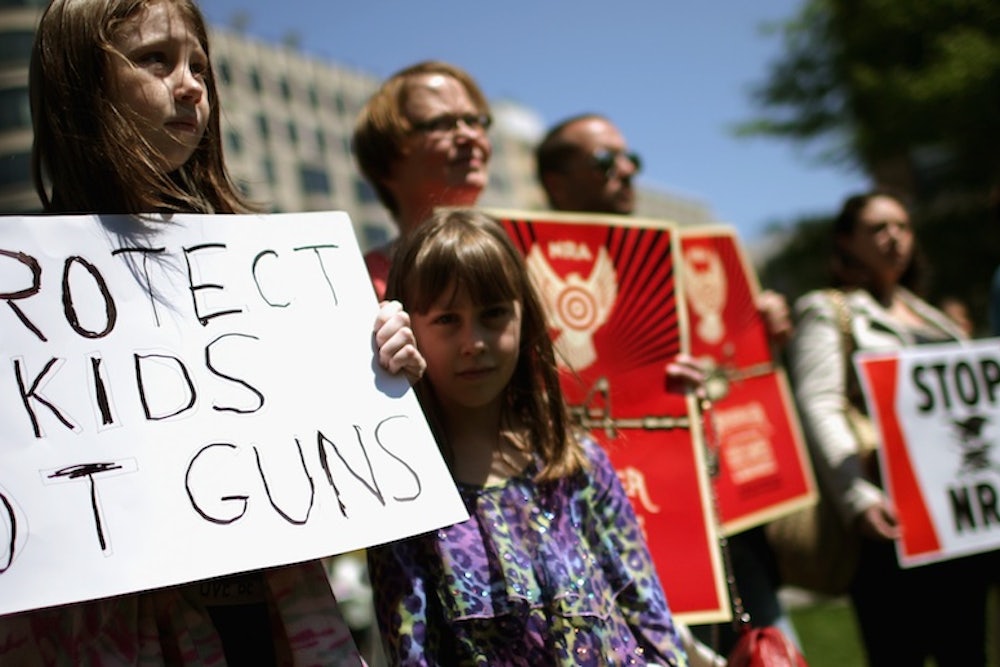During last year’s battle over gun control, the pro-gun side did more than passionately invoke the Second Amendment: They claimed that gun control doesn’t work. Sometimes even the reformers, surveying the limited impact of legislation from the 1990s, feared the same. But a new study on universal background checks makes the strongest case yet that the policy saves lives. “This is probably the strongest evidence we have that background checks really matter,” said Philip Cook, a gun expert at Duke’s Sanford School of Public Policy.
The study, from the Johns Hopkins Center for Gun Policy and Research, found the murder rate in Missouri jumped 16 percent—an additional 55 to 63 murders a year—after the repeal in 2007 of a state law that required anyone purchasing a handgun to obtain a permit showing they had passed a background check. (Though federal law mandates background checks by licensed dealers, private dealers don’t have to perform them in all but 14 states.) "This study provides compelling confirmation that weaknesses in firearm laws lead to deaths from gun violence," said Daniel Webster, the study’s lead author, in a statement.
Since this is only a single study, "it's just suggestive," warned David Hemenway of Harvard's School of Public Health. It is "another piece of evidence that is consistent with the bulk of the literature, which shows where there are fewer guns, there are fewer problems... But you want eight more studies that say background checks really matter."
And the study isn’t perfect: Missouri also enacted a “stand your ground” law in 2007, creating some challenges in disentangling the effects. But Cook said he is confident that background checks played a major role because the authors tracked an increase in guns that went directly from dealers to criminals—exactly the scenario background checks are designed to prevent. The study also notes an uptick in guns “purchased in Missouri that were subsequently recovered by police in border states that retained their [permit-to-purchase] laws.”
The findings at least begin to fill a gap in the research that last year’s debate exposed. Mayors Against Illegal Guns, Michael Bloomberg’s gun control group, found that the shortage of data stems from a shortage of funding—especially federal funding. In 1996, the National Rifle Association and the gun lobby pushed Congress to eliminate the $2.6 million appropriation that underwrote the Center for Disease Control’s research on firearm injuries. President Barack Obama ended the funding freeze last year, and Garen Wintemute, director of the Violence Research Program at the University of California, Davis, told NBC that private funding for gun research has also spiked with the shooting of Congresswoman Gabrielle Giffords and other high-profile acts of violence.
So why hasn’t the new finding gotten much attention? “I don’t mean to diminish the value of the study, but I don’t think it could have made a difference last year, and I don’t think it will now,” said Tom Diaz, a former policy analyst at the Violence Policy Center. He called the finding “very clear,” but added: “The debate is just unhinged from the facts.”
As the study notes, 89 percent of Americans, and 84 percent of gun owners, supported universal background checks in 2013, before this study bolstered the argument for them. But that’s just one more reason for Congress to pick up the issue again—that, and a new analysis last week which found there have been 44 school shootings since the one at Sandy Hook Elementary School in Newtown, Connecticut.
H/T Igor Volsky at ThinkProgress, one of the few people to take note of this study last week. His take is worth reading.
